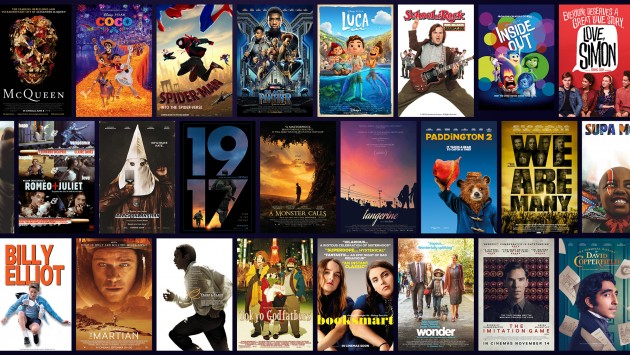The confluence of film education and the profound principles of the Bahá’í Faith presents an opportunity to cultivate a more enlightened global audience. At the heart of Bahá’í teachings lies a vision of unity, love, and compassion, embracing the belief that education is vital to social transformation. In enhancing film education through this spiritual lens, we can inspire a shift in perceptions and deepen engagement with the art of storytelling. This comprehensive exploration delves into the salient points where film education and Bahá’í teachings intersect, leading to the proliferation of love and enlightenment in cinematic narratives.
In the contemporary world, film serves not merely as entertainment but as a conduit for reflection, education, and social commentary. Through the lens of Bahá’í teachings, filmmakers can harness this medium to explore universal themes of love, justice, and the oneness of humanity. This divine truth is articulated beautifully in the writings of Bahá’u’lláh, who emphasizes that the essential purpose of education is the development of the human spirit and the promotion of moral virtues. Film, as an educational tool, offers an engaging platform to propagate these virtues, prompting audiences to consider their role within the global tapestry of humanity.
To begin, it is imperative to recognize that film education should transcend conventional curricula. While technical skills are essential, burgeoning filmmakers must also be equipped with an ethical framework rooted in Bahá’í principles. This includes understanding the impact of their narratives on diverse audiences and the responsibility of portraying human experiences with authenticity and integrity. By integrating Bahá’í teachings into film education, students are encouraged to reflect on how their creative expressions can foster unity and empathy.
The pedagogical approach informed by the Bahá’í Faith promotes critical thinking, enabling filmmakers to interrogate societal narratives. This inquiry leads to a rich exploration of themes that resonate universally; for instance, representations of love in its myriad forms. Film has the capacity to illuminate the complexity of human relationships, challenging viewers to consider alternative perspectives and cultivate compassion. Allowing audiences to navigate the intricacies of love, forgiveness, and sacrifice encourages a deeper understanding of our shared humanity, an endeavor that aligns seamlessly with Bahá’í ideals.
Moreover, storytelling embodies a potent mechanism for bridging cultural divides. Through the depiction of diverse narratives, filmmakers can engage audiences in dialogues that span geographical and cultural contexts. The Bahá’í teachings which advocate for the recognition of the inherent nobility of all individuals serve as a foundation for these narratives. Film education must emphasize the importance of inclusivity, striving towards the representation of various cultures, experiences, and backgrounds. This approach not only enriches the cinematic landscape but also fosters a sense of global belonging and solidarity among viewers.
As film education progresses in this direction, it can cultivate visionary storytellers who embrace the notion of art as a force for social change. The Bahá’í principle of working towards the betterment of society inspires filmmakers to engage critically with contemporary issues such as inequality, discrimination, and environmental degradation. By weaving these themes into their work, filmmakers awaken the consciences of their audiences, urging them to reflect upon their own perceptions and actions. Such reflections often serve as a catalyst for personal and collective transformation, nurturing a society built upon the ideals of love and justice.
Emphasizing collaboration within film education programs further enhances this transformative potential. The spirit of consultation—a key Bahá’í principle—encourages collective inquiry, where diverse minds converge to create and critique. By fostering an environment where collaboration is paramount, students learn from one another, thereby broadening their horizons and enriching their perspectives. Central to this collective endeavor is the understanding that the power of storytelling is magnified when voices are harmonized, resulting in a richer narrative tapestry that reflects the complexities of life.
The integration of technology within film education also merits discussion. The excitement of modern technological advancements allows for innovative storytelling techniques that can captivate global audiences. As such, filmmakers must be adept at leveraging these tools to convey poignant messages that align with Bahá’í teachings. Engaging with digital platforms can facilitate broader dissemination of content, making it accessible to diverse populations and fostering a sense of global community. Whether through virtual film festivals or online workshops, technology significantly amplifies the reach and impact of narratives aimed at promoting love and understanding.
Furthermore, emphasizing the role of emotion in film can catalyze a renewed appreciation for the nuances of storytelling. The Bahá’í Faith speaks to the profound significance of the human heart in the experience of love and connection. Filmmakers who pay homage to this aspect can create evocative narratives that touch upon the very essence of what it means to be human. By crafting stories that evoke empathy and encourage introspection, filmmakers not only engage their audiences but also stimulate a collective yearning for harmony and understanding.
In conclusion, the intersection of Bahá’í teachings and film education heralds a promising paradigm that extends beyond conventional storytelling. The amalgamation of love, ethical filmmaking, and inclusivity elucidates the profound responsibilities that accompany creative expression. As audiences around the globe become increasingly attuned to narratives shaped by these principles, a profound transformation in perspective can emerge. This endeavor invites an ever-widening circle of individuals to embrace the beauty of diverse experiences, ultimately uniting us in our shared quest for peace and understanding. The path forward hinges upon our collective commitment to fostering a cinematic landscape that not only entertains but also uplifts the human spirit through love and education.
